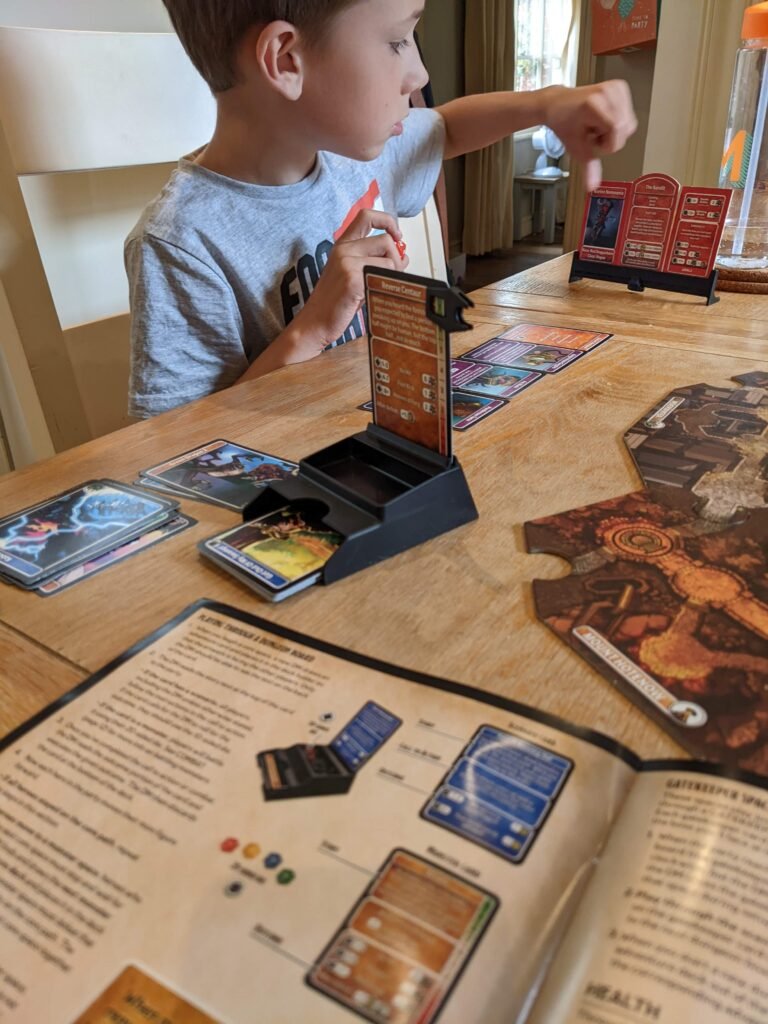The benefits of tabletop games
Okay, so digital devices and game consoles are great fun, but families will need to go a long way to outdo the benefits of a decent tabletop or card game. My boys are currently of the age where they love a decent tabletop roleplaying game like Adventure Begins from the D&D range, or even engaging in collecting and bottling with the latest pokemon cards sets. But are there any particular benefits to playing card and board games as a family?
1. Keeping the mind active
Whilst game consoles are enjoyed by many, the older generations tend to engage in these less. This is a generalisation, but the type of game most suited to a wider range of players s tabletop games. The reason old-fashioned titles like Lexicon, Top Trumps, Patience, Old Maid, Scrabble, Monopoly and Snakes & Ladders are so popular is they allow players to keep their minds working throughout. Whether the player is young and learning numbers and strategies, or older and keeping the faculties whirring, tabletop games offer a multi-focussed cognitive experience where players are present in the room. Many games offer a mathematical or logical opportunity to strengthen the mind.
I’m delighted that roleplaying games and strategy games are becoming more mainstream these days. The popularity of TV shows like Stranger Things has highlighted how immensely engaging and fun role-playing games can be. Not only are they popular, but they also expose players to unlimited opportunities to explore facets of statistics, variables, probability, character development and more – all fab for strengthening those neurons and synapses in the brain.
2. Learn to lose.
It’s an important step, learning to lose. Understanding from an early age that it is okay to make mistakes and wrong decisions because we learn from these is essential to developing a healthy mindset for perseverance. I’m sure most families have had the odd game of Subbuteo end in drama as game pieces are knocked to the floor, but, over time, players learn with repetition to lose (and win) gracefully.
Longer adventure games like Adventure Begins (entry into the Dungeons & Dragons world for new, young players) allow players to become invested in their efforts only to potentially be thwarted by a powerful dragon or ghoul. This helps, when nurtured, to develop a focus and drive to try, try and try again until the challenge is overcome.

3. Strategy and concentration
Learning old-fashioned games like poker allows players to foster an understanding of not only what their hand is worth and capable of, but also relate this to the hands of the other players. Players have to concentrate on a multitude of factors in order to stand the best chance of maintaining their pot.
Similarly, games like Top Trumps, whilst simple in nature, allow players of all ages to start to consider which card is best played in which way – they learn their hand in a proactive way. Top trumps have grown over the years to offer sets of cards for tabletop players for just about every genre and interest from fairies to wizards, cars to dinosaurs, movies and authors.
4. Interpersonal skills
Recently, Top Trumps brought out a new range of games called Match. These games are transportable and playable (like card games) almost anywhere. They are built around two players playing head-to-head and building up rows or columns of matching icons. I’ve played the Supermario version of this numerous times and the kids love it. I can see them laughing and trying to call each other’s bluff with their own strategies.
We’ve recently been trying out one of their newer Match games which is literacy-based; Lex Match pitches players against each other to form 5 letter words in a connect 5 format with bonus points for using the letters on a player’s secret card pile. It’s really good for encouraging a discussion around spelling rules with younger children.
5. Presence in the room
Whether it’s collecting and playing with the latest Pokemon cards sets or enjoying a nostalgic and stereotyped playthrough of The Game of Life, tabletop games offer players the chance to be in the moment when playing. They can laugh, cry, pause, team up and agree to disagree all in the safe arena of gaming. This is one of the reasons board games are still so popular when families get together. They’re reasonably inexpensive compared to video games (unless you’re using discount steam keys for game streaming), and they offer flexible fun where all players can simultaneously chat about life, love… whatever.
I’ve enjoyed many an evening with friends and a glass of wine playing games like Munchkin, Zombie Dice, Bandido and more where the games are merely vehicles to enjoy an evening together – even if the game’s never finished.

